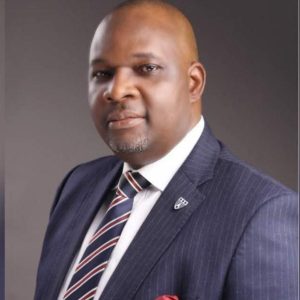Overview
Nigeria needs well-designed and competently administered government policies, programmes, and services for the effective functioning of their economy and society. While the politicians decide on the direction and thrust of government action, it is public servants who support them in shaping policy, interpreting policy, and delivering essential services. Nigeria currently faces severe challenges in leadership especially in the Public Sector – at the Federal, State and Local Government levels.
This structured, high immersion, experiential programme addresses the leadership issues facing the public sector. It will provide public sector leaders with both global and locally adaptive frameworks, tools, and techniques, critical to influencing the formulation, design and delivery of effective public policies and services.
This programme leverages our record in business education and ensure that participants gain the required management knowledge and administrative skills, by employing the case-study method and group-work approach to learning which draws on the experience of faculty and participants.
Upon completing this executive programme, you will be admitted into the prestigious Lagos Business School Alumni Association, an exclusive global network of over 9,000 members across the private and public sectors with active chapters in Nigeria, the United Kingdom, United States of America, and Canada.
Learning Objectives and Benefits
You will leave Lagos Business School better equipped with skills and insights that help you in your role, and that will strengthen your contribution to the public sector more widely. You would have strengthened your ability to respond to six challenges facing all leaders of major public institutions:
- Making tough decisions while managing the biases that distort decisions made under pressure.
- Improving the ability of your organisation to deliver outcomes that matter to the people you serve.
- Building a culture of undiluted integrity in your organisation and sector.
- Communicating effectively in your own organisation, across government, and with diverse public audiences and partners.
- Creating effective partnerships with businesses and social sector organisations, and negotiating internationally across sectors to deliver better services, produce better outcomes, and advance the public interest.
- Adapting to changing digital technology and harnessing its benefits while managing the challenges of cyber threats.
Who should attend
The Public Sector Leadership Programme is designed for permanent secretaries, chief executives, director general, executive secretaries, or equivalent), who serve as the accountable officers in a ministry, department or agency or as appointed heads of statutory government agencies and parastatals (or are likely to move into such a position within the next two years).
Structure and Curriculum
The programme focuses on public sector management and governance, the World and Nigeria’s place in it. It will place emphasis on the good use of evidence in shaping public policy advice and action. The learning journey will examine four thematic areas. The first three thematic areas that will be delivered at Lagos Business School are:
- Thematic area one: Responsible Leadership and Administration
- Thematic area two: Policy Implementation for Sustainable Development
- Thematic area three: Stakeholder engagement and collaboration
Key modules covered in the three thematic areas include:
- Understanding the National Economic Development Plan and the Changing Socio-economic Landscape
- Strategic Thinking, Planning and Policy Execution for Sustainable Development
- Strategic Foresight and Design Thinking – Building Resilience and Agility
- Basic Accounting and Finance for Strategic Planning & Budgeting
- Law and Finance for Execution of National Development Plan
- Authentic Leadership: Key Leadership Skills and Understanding Your Leadership Style
- Public Sector Ethics, Governance and Accountability
- Effective Stakeholder Management as a Strategy for Inclusive Governance and Development
- Negotiating in Public Interest: Strategies that Work
- Governance of Risk in Public Service: Identification, Assessment and Management
- Understanding Decision Making Process and Reducing Cognitive Bias in Decision-making
- Using Data Analytics for Optimal Public Service Delivery and Performance
Admission process
- Complete an application form online or make a request to execedsales@lbs.edu.ng
- All applications undergo a thorough screening process prior to confirmation of admission
- The Programme Manager will get in touch with you as soon as an admission is granted
Faculty

Silk Ogbu is a political and marketing communication strategist, and stakeholder and relationship management consultant with over 25 years of managerial experience across the private and public sectors. He has contributed immensely through publications, conferences and training to the pursuit of excellence in the academia and industry. He teaches currently at the Lagos Business School, Pan Atlantic University, Lagos.

Franklin N Ngwu is the Director of Lagos Business School (LBS) Sustainability Centre and an Associate Professor of Strategy, Corporate Governance and Risk Management. He has a PhD in Law and Economics of Banking Regulation, MSc in Economics and Post-graduate Diploma in Development Economics from University of Manchester, UK. He has consulted for both local and international organizations and worked in Barclays Bank UK for over five years. In Nigeria, he has provided either training or consulting services to many firms including Central Bank of Nigeria (CBN), African Development Bank(AfDB), StanbicIBTC, First Bank of Nigeria(FBN), Banwo & Ighodalo, WAPIC Insurance, Nigeria Stock Exchange (NSE), Asset & Resource Management Holding Company (ARM), Nigerian Breweries Plc, AXA Mansard, Redeemed Christian Church of God (RCCG), FrieslandCampina WAMCO Nigeria Plc, Airtel Nigeria and many other organisations.
Ndanusa served variously as Special Assistant to the Honourable Minister of Commerce; Chairman and ,Director-General, Securities and Exchange Commission; Lead Consultant in the Central Bank of Nigeria Bank Consolidation Monitoring Team before his appointment as the Managing Director of Spring Bank Plc to salvage the crises ridden Bank. He also served as Director Economic Intelligence in the office of NSA. An Officer of the Order of the Niger (OON) since 2003, Ndanusa has served as a Council Member, Nigeria Investment Promotion Commission; Member, Technical Committee on Privatisation (BPE); National Pensions Reforms Steering Committee and the Chairman/Pro-Chancellor of IBB University Lapai, in Niger State.
He started his working career with the Central Bank of Nigeria (CBN) as an Assistant Economist in the Research Department, Lagos from August 1979. He was an AGM in ABC Nigeria Limited, Kaduna and worked at the New Nigeria Development Company Kaduna, as Principal Investment Executive in the Corporate Planning Department. From 1987 he was at various times the Deputy Manager, Manager, Head of Department, Assistant General Manager & Head of Domestic Money Market Department of Continental Merchant Bank Nigeria Plc. He was also the Group Managing Director Of Empire Group Limited, Lagos (a financial services holding company) and later became the Chairman . Ndanusa is a fellow of many professional bodies and serves on the board of many public and private institutions .
Testimonials
“The programme has taught me a deeper understanding on self-awareness, communication, resilience, power, and influence”
Folorunsho Coker Director General, Nigerian Tourism Development Corporation

